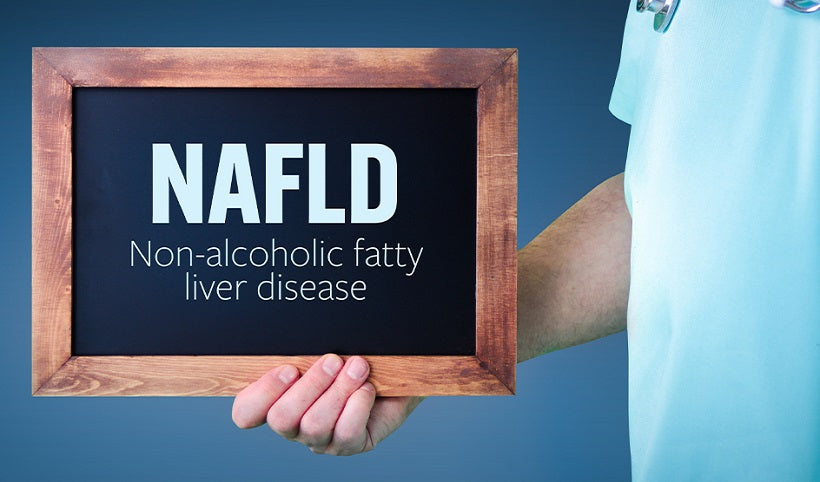Fatty liver disease (NAFLD) is increasingly common, especially during midlife. The good news? With the right diet, hormone balance, and natural support, fatty liver can be reversed. Here’s how to identify the causes, symptoms, and natural ways to restore your liver health.
In Short: How to Heal Fatty Liver Naturally
A fatty liver diet rich in whole foods, antioxidants, and lifestyle changes can reduce liver fat and improve long-term liver health. A natural cure for fatty liver includes detox practices, hydration, sleep, and regular exercise — all of which help reverse NAFLD and restore balance.
Key Takeaways
- Whole-food diet – Leafy greens, healthy fats, and antioxidants are essential for a fatty liver diet.
- Natural cure for fatty liver – Focus on detox, hydration, and anti-inflammatory nutrition.
- Liver detox support – Herbs, hydration, and targeted supplements aid daily detoxification.
- Supplements – Formulas like Happy Liver and Happy Turmeric enhance liver recovery and function.
- Exercise & sleep – Regular movement and quality rest improve metabolism and help reverse NAFLD.
- Liver-friendly habits – Try detox recipes, reduce sugar, and avoid processed foods to support healing.
Combine nutrition, lifestyle changes, and natural liver support to restore liver function and reverse fatty liver naturally.
What is Fatty Liver Disease (NAFLD)?
Commonly referred to as fatty liver, Non-alcoholic fatty liver disease (NAFLD) occurs as a result of excess triglycerides (fat) stored in the liver which cause inflammation and damage to liver cells. The liver's function is to work as a detox organ for the body, filtering out harmful substances and not to store fat.
NAFLD is highly prevalent in women with hormonal imbalances, and even higher among those with PCOS. Menopause and the drop in reproductive hormones can also predispose you to NAFLD.
Perhaps you're wondering how on earth that could happen when you barely drink alcohol. The thing is, the most common form of fatty liver is actually non-alcoholic fatty liver disease or NAFLD. It's the most common liver disorder in the Western world and the biggest culprit is sugar, over-eating and a sedentary lifestyle! 1 in 3 people suffer with NAFLD.
How do you get fatty liver disease (NAFLD)?
Fatty Liver Disease NAFLD is associated with what is known as metabolic disease. Metabolic disease essentially occurs when we consume over-processed foods, resulting in excess calories and not moving our bodies enough. This process causes the insulin resistance and results in fat building up in our tissues because it is not utilised. Essentially we are becoming sick from over nutrition. The fat build up occurs in and around organs, muscles and circulatory system. Think foie gras. This is when ducks are force fed to generate fatty livers. Think wagyu beef. This is what is occurring in your body with accumulating of fat in your tissues and it not a healthy situation. This ultimately leads to NAFLD.
How to know if you have a fatty liver NAFLD?
- Fatigue: Feeling tired or weak without a clear reason.
- Pain or Discomfort in the Upper Right Side of the Abdomen: Some individuals may experience discomfort or a dull ache in the area where the liver is located.
- Weight Loss: Unintentional weight loss may occur.
- Enlarged Liver: In some cases, the liver may become enlarged, which can be detected by a healthcare provider during a physical examination.
- Dark Urine: The urine may appear darker than usual.
- Jaundice: Yellowing of the skin and eyes due to the accumulation of bilirubin, a yellow pigment. in the Abdomen: As the disease progresses, fluid retention in the abdomen (ascites) may occur, leading to abdominal swelling and discomfort.
- Spider-Like Blood Vessels: Spider angiomas, small blood vessels near the surface of the skin, may develop, especially on the upper body.
- Itching: Some individuals with advanced NAFLD may experience itching, which can be related to liver dysfunction.
- Pale-Colored Stools: Stools may become lighter in color than usual.
- Nausea and Vomiting: As liver function is compromised, nausea and vomiting can occur.
The implications run much deeper however for your health and wellbeing. The liver is a vitally active organ in our wellbeing. It processes hormones, vitamins and minerals, stores nutrients, processes toxins and regulates blood sugar levels. It also plays an important role in digestion. When it is not working well we find hormonal issues develop, headaches, fatigue and malaise, poor sleep, weight gain and loss, irritability, abdominal discomfort and digestive disturbances. Inflammation levels increase and a range of aches and pains ensue.
So it is vitally important of you have pre NAFLD or existing NALFD you take steps to change your diet and lifestyle as well as repairing the liver.
Does Sugar Cause Fatty Liver Disease?
Interestingly the evidence shows that it's specifically fructose (at high levels) that's to blame. This is because fructose, unlike other sugars, is processed in the liver.
As you probably know, fructose is the sugar that makes fruit taste sweet. For most people, there's nothing wrong with eating fruit because it contains fibre. In its natural state, fructose isn't concentrated like it is in certain foods, particularly those manufactured in the United States.

When certain foods are processed - such as corn, beets, or sugarcane - fructose is extracted and concentrated. All the nutrients and fibre (which slows down absorption) are removed and it's incredibly damaging to our health.
How to cure fatty liver disease (NAFLD)
Of course, removing sugar is the priority so start by keeping an eye out for where fructose might be lurking in your diet. Here are a few foods to look into:
- Organic cane sugar (it's actually 50% fructose!)
- Honey
- Agave nectar
- Table sugar
- Fruit juices
- Some lollies, baked goods, and sodas (read the labels!)
All of these various forms of refined sugar are linked to obesity, insulin resistance and elevated blood fats. Spiking insulin levels are associated with NAFLD.
Other Nutritional Considerations
If removing refined sugars has not addressed your fatty liver, it's important to support liver health in other ways.
If you can eliminate these, that's a great start.
- Alcohol. If you have fatty liver and you are still drinking alcohol, it's time to cut it out.
- Processed food products. Time to clean out your pantry! Processed foods which contain transfats, artificial flavours, and preservatives, are all taxing on your liver. Stay away from these.
- Conventionally farmed meat products. Pay special attention to those containing nitrites.
- Refined grains. (white bread, pastries, white pasta, corn products)
- Excess caffeine. No more than one daily.
- Certain medications. (Speak to your doctor if this is an issue) Paracetamol is a common medication that affects your liver.
- Herbicides and pesticides. Eat organic when possible. Take the excess strain of herbicides and pesticides off your liver.
- Toxin exposure. Avoid conventional household cleaning products, air fresheners, perfumes, toiletries and personal care products. Not only are these a burden on your liver, but they also significantly impact your hormones! Make the switch to natural products instead.
Look up The Dirty Dozen as a starting point for eating healthy. You can also check out our latest HAPPY HEALTHY YOU book which contains over a hundred wholesome, nutrient-dense recipes, plus a guide to ultimately set the direction of your health positively.
Foods that Support Liver Health
Here are some foods and supplements that have been proven to support the health of your liver:
- Juice: Juicing raw veggies and herbs is an excellent way to flood your system with beneficial nutrients and enzymes to assist liver function. Add herbs like ginger, coriander or turmeric too. Try this Green Juice recipe for starters.
- Greens: Eat more greens. Especially brassicas (broccoli, cabbage, cauliflower, spinach, bok choy, kale, Brussels sprouts)
- Overeating: Stop overeating and implement intermittent fasting. This allows your body to burn through these excess calories and it will be forced to dip into these fat reserves in the body. Also consider longer periods of supervised fasting.
Equally as important as the right diet, is using the right herbal medicines that have the ability to heal your liver.
Can Exercise Help NAFLD?
Moving our bodies regularly is the key. The best way to burn fat in our tissues is low intensity cardiovascular exercise. What we call zone 2-3 where your heart rate sits around 100-130 beats per minute for prolonged periods of time. Ideally 1-2 hours several times per week. The body is forced to use fat reserves as energy and reduces the overall burden of fat stores in the body.
Are There Natural Supplements I Can Take?
Our Happy Liver formula. The good news is the liver does repair itself and in combination with the above diet and lifestyle measures you can improve liver function. Inside Happy Liver, we have included herbs that are known as tropho-restorative, which means they restore healthy function of the liver. Happy Liver also supports your liver's daily detoxification processes, overall digestion and proper breakdown and absorption of fats.
Shop Happy Liver
This powerful liver supplement features Methionine and Cysteine to support natural liver detox processes, enhancing liver health and overall detoxification.
Our Happy Turmeric (HT) formula. It's a potent anti-inflammatory rich in antioxidants which also makes it excellent for liver support. Happy Turmeric is fermented, providing the digestive tract with healthy flora that takes the load off the liver.
Shop Happy Turmeric
Happy Turmeric is a fermented turmeric concentrate which has become increasingly bioavailable as a result of the fermentation process, with additional ginger and black pepper for added assimilation.
If you’re struggling with fatty liver changes (NAFLD), it may be time to support your liver naturally.
Our practitioners recommend combining Happy Liver + Happy Turmeric to help reduce inflammation, improve detoxification, and support optimal liver function.
Fatty liver disease (NAFLD) is increasingly common, especially during midlife. The good news? With the right diet, hormone balance, and natural support, the liver can heal. Here’s how to identify the causes, symptoms, and natural ways to restore your liver health.
Need more support or want someone to help you better understand your test results? Check-in with our naturopaths in the online HHY clinic for a 1:1 naturopathic consultation. Just click on the button below to book an appointment.












Leave a comment
This site is protected by hCaptcha and the hCaptcha Privacy Policy and Terms of Service apply.